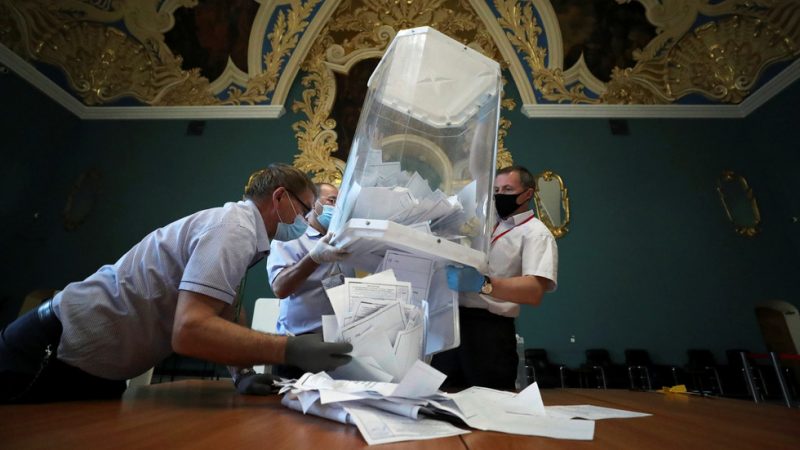
Exit polls after the Russian constitutional vote show 71 percent of the country supported the proposed amendments while just over 28 percent were opposed.
The changes are major updates to Russia’s most important legal document.
The tallies were conducted at 800 polling stations in 25 jurisdictions. They are based on questions asked of over 445,000 voters, 69.9 percent of which responded.
Wednesday marked the final day of in-person voting in the referendum, with turnout reaching 65 percent.
The Central Elections Commission (CIK) has received reports of only four possible instances of irregularities, its head Ella Pamfilova told reporters on Wednesday evening. The ballots at affected polling places will be recounted.
“There is currently no reason to believe this will somehow influence the outcome of the vote, but we will make sure everything is done correctly and accurately,” said Pamfilova.

The 206 amendments range from social issues like pensions to rules for government officials. The one that has received most media attention redefines eligibility for the presidency.
In theory, it would allow President Vladimir Putin to run for office two more times, potentially staying in power until 2036.
Initially planned for April 22, and postponed to July 1 due to Covid-19, the all-Russian vote took place over a week, and, for the first time ever, in Moscow and Nizhny Novgorod, voters were allowed to cast their ballots online.
The amendments were already approved by the legislature before being put up for a national vote.
Other changes include the regular indexation of pensions for inflation and a guaranteed minimum wage above subsistence level; the definition of marriage as a union between one man and one woman; a ban on top government officials from holding foreign passports; and restricting future presidents to serving only two terms.
There was some controversy about the new constitution also including a mention of God, in regards to the country’s heritage.

The constitutional amendments that were supported by the Russians “show to the rest of the world a vision for the future” in a time of crisis that the international community now faces, former Italian Foreign Minister Franco Frattini told RT.
“It’s a comprehensive perspective, including balance of power, but also social welfare, the role of women and the right of a decent salary for the workers.”
The former minister said he found at least four “interesting” points that were completely overlooked in the West.
“You will have a new constitutional principle of multi-nationality… when people are coming from different histories, cultures, traditions, religions, but all are united under the flag; under the state of Russia.”
The newly-amended constitution also marks a slight shift away from the hyper-presidential system, introduced by former President Boris Yeltsin in 1993.
By redistributing some powers to other government organs, both Russia’s lower and upper houses of parliament now have the opportunity to propose and approve of certain officials.
Published by RT.com
The 21st Century
The views expressed in this article are solely those of the author and do not necessarily reflect the opinions of 21cir.
More from RT.com:
ALSO ON RT.COMVote on amendments isn’t about Putin, it’s the first ever ‘truly Russian constitution’
